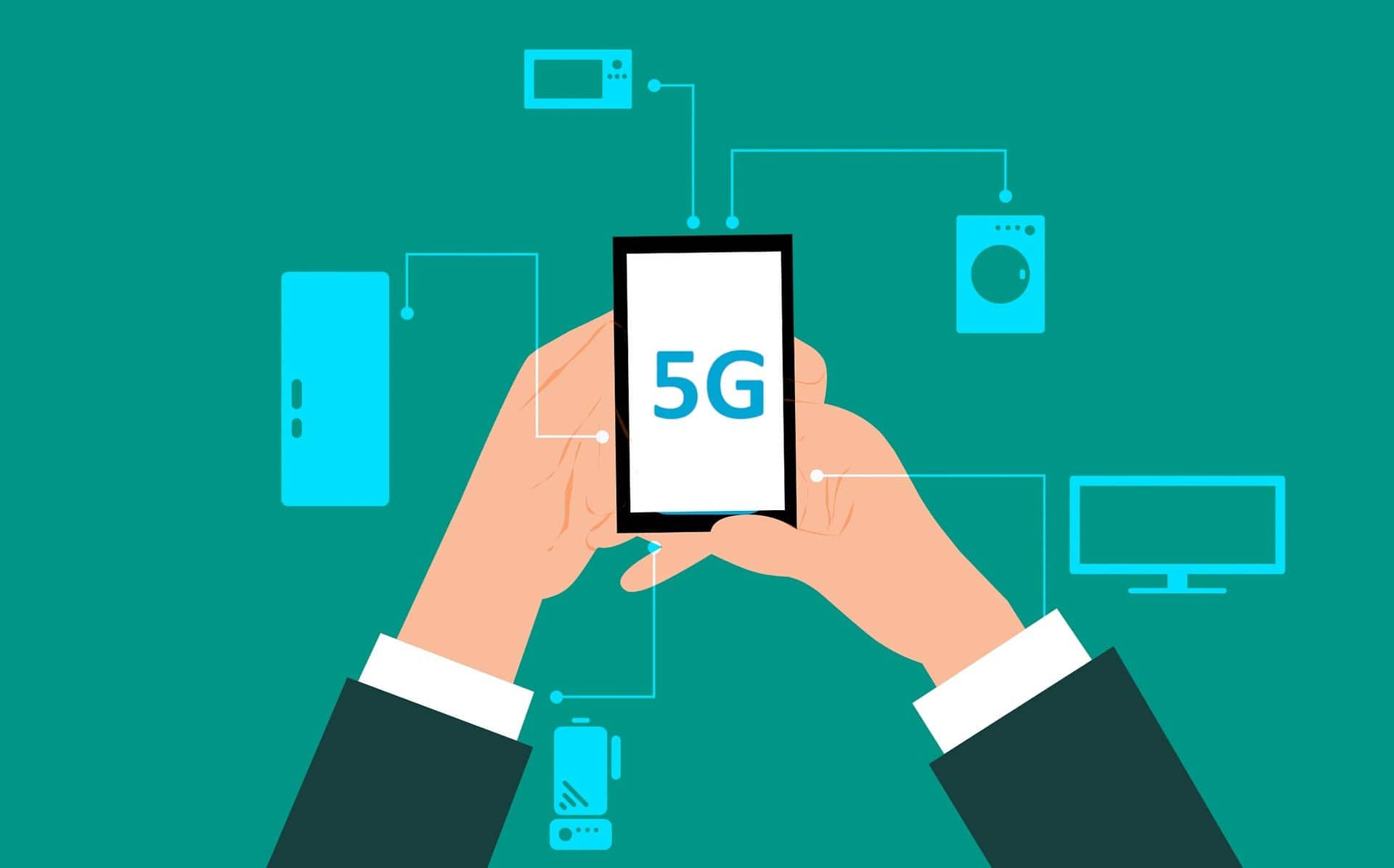
During the pandemic, 5G has been making headlines in the news for a variety of reasons. Some of it is exciting updates about rollout and implementation of technologies and equipment needed to increase 5G around the country and the world. Conversely, some of the information floating around about 5G is a little strange, and frankly incorrect, so we thought it would be a good idea to set the record straight about what exactly 5G is. And also, what exactly it isn’t.
So, here’s everything you need to know about 5G networks, including some myths that you definitely shouldn’t believe.
What is 5G?
5G is the name for the fifth generation of technology standards for cellular broadband networks. 5G operates on the same principles as previous network iterations (4G, 3G, etc), but uses higher radio frequencies to provide a variety of benefits not available in older generation networks, including an expanded capacity for connection of devices, more flexibility, increased scalability, faster speeds, better reliability, clearer calls, and more.
What are the benefits of 5G?
5G networks are going to provide a lot of benefits as they are implemented around the world.
Faster
As far as cell phones go, one of the most noticeable differences with 5G will be speed. 5G networks use higher frequency bands, which offers increased bandwidth. This will translate to faster speeds for connected devices, as well as reduced latency, which means that calls will connect faster, and data will transfer significantly faster than on current networks.
Increased capacity
One of the most highly anticipated benefits of widespread 5G coverage is the increased bandwidth capacity. 5G networks will be able to support around a 100x increase in network traffic. This is especially exciting for the future of connected devices and the Internet of Things. The increased capacity could support a real boom in connected devices.
Reliability
Since 5G networks are created to be ultra-reliable, in addition to better cell phone connections, networks will be able to support connections for things like critical infrastructure, medical technology, connected vehicles, and more.
Forward compatibility
Another exciting advance from 5G will be forward compatibility. This means 5G networks will potentially have the capability and flexibility to support future technologies that don’t even exist yet.
What are some myths about 5G?
Many new technologies are met with skepticism at first, and sometimes that skepticism expands into conspiracy theories when people spread partial or incorrect information that is then further disseminated without being fact-checked. Now that we’ve reviewed what 5G actually is, let’s take a look at a few common myths about 5G;
Myth 1: 5G networks are the cause of Covid-19
One surprising–and completely false–myth that started floating around the internet in 2020 is that 5G networks are the cause of the Covid-19 pandemic. You may even remember news reports of 5G towers being set on fire in Europe because conspiracy theorists believed they were the cause of the outbreak.
There’s no factual basis for this myth, which amounts to a rumor someone started on the internet. 5G is not the cause of Covid-19 or any other virus. There is no possible way for a virus to be spread by 5G transmissions.
Myth 2: 5G networks harm birds
Another myth that is often heard about 5G networks is that they are causing mass deaths of birds. However, numerous studies have demonstrated that birds are not harmed by radio waves at the frequencies used by cell towers. Even the Audubon Society (a nonprofit whose entire mission is to protect birds and their habitats) considers this theory to be total nonsense.
Myth 3: 5G networks are used to spy on you
Unsurprisingly, conspiracy theorists also have popularized the notion that the real impetus behind 5G networks is that they will be used by the government to extensively spy on citizens. While the security and reliability of 5G networks will make them more attractive for government agencies to use, all of a person’s information that passes through a 5G network won’t automatically be funneled to the government for review. Whatever amount of monitoring the government is doing of citizens will likely be unaffected by the type of network used.
These and other myths about 5G networks are being shared in online forums around the world. Many people don’t or won’t take the time to fact-check these claims before spreading the information to others. The reality is that 5G networks will improve our lives in many ways. These baseless conspiracy theories only take attention away from other considerations that might be of real value.
When will 5G be available?
In the United States, 5G began rolling out in 2018, but due to the infrastructure changes and updates required, it will take years for 5G to be the primary connection method for mobile devices. Some estimates indicate that by 2025, about half of mobile connections will be done via 5G. The primary limitations on the adoption of 5G technologies are the massive infrastructure updates needed to support 5G. The fact that devices have to be equipped with 5G technologies to take advantage of features. So, end-users will have to purchase a new device in order to connect to 5G networks and access those benefits.
4G and other types of cellular signals can still be improved with existing technologies, such as cellular signal booster systems. A signal booster system takes an existing cellular signal, amplifies it, and rebroadcasts it to a designated area. Cellular signal booster systems can increase the reliability of cell signals in your home, office, or almost any other location. Until 5G coverage is more mainstream, a cellular signal booster system is a great way to get better cell coverage, faster download speeds, fewer dropped calls, and clearer calls wherever you use your phone most.

